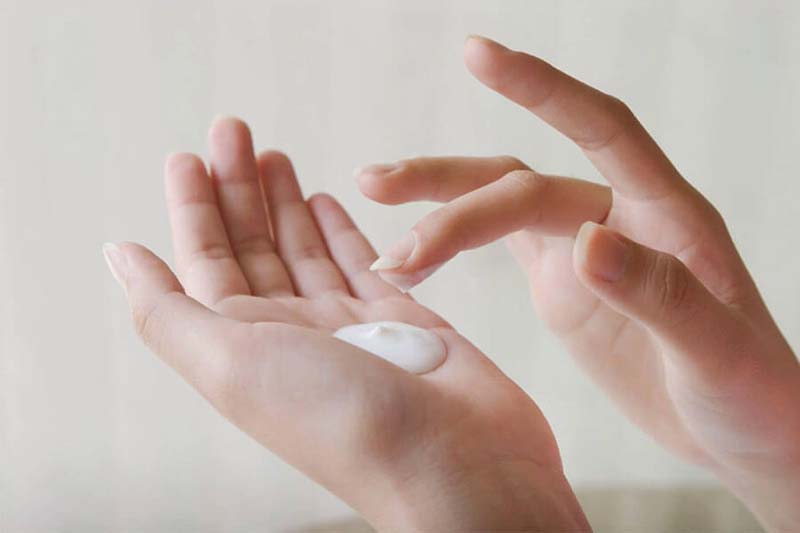Protecting your skin from the harmful effects of UV rays is crucial. But on cloudy and rainy days, many people tend to skip applying sunscreen, unaware that UV rays can penetrate through clouds and rain, affecting their skin. It’s important to be aware of these five common mistakes to ensure absolute protection for your skin.
Applying too little sunscreen
To achieve optimal protection, it is necessary to apply a generous amount of sunscreen, approximately 2mg/cm2 of skin. For context, if your face has a surface area of around 500cm2, you should use about a teaspoon of sunscreen. Applying too little will render the SPF (Sun Protection Factor) ineffective, contrary to the packaging claims.

Ensure you apply a thick layer of sunscreen, approximately 2mg/cm2 of skin.
Neglecting antioxidants
Antioxidants such as vitamins C and E, and selenium, not only neutralize free radicals but also enhance melanin production. This boosts your skin’s natural sun protection. Therefore, in addition to sunscreen, include antioxidant-rich foods in your diet to ensure healthy and protected skin.
Relying solely on sunscreen
While sunscreen is essential, it only provides partial protection against UV rays. It’s crucial to incorporate other protective measures, such as wearing covering clothes, a wide-brimmed hat, and sunglasses. Avoid direct sun exposure during peak hours (10 am to 3 pm), and reapply sunscreen every 2-3 hours, especially if you’re outdoors or engaging in physical activities.

Sunscreen is just one part of the equation; don’t forget about additional protective measures.
Applying sunscreen once in the morning
For sunscreen to be effective throughout the day, reapplication is key. Reapply every 2-3 hours, especially after sweating or swimming. Applying it just once in the morning will not provide all-day protection.
Choosing the wrong product for your skin type
It’s important to select a sunscreen that suits your skin type. For acne-prone skin, opt for a non-comedogenic formula that won’t clog pores. If you have dry skin, choose a moisturizing option. Additionally, pay attention to potential irritants in the ingredients, such as fragrances or alcohol. Always read the labels and choose a sunscreen that aligns with your skin’s unique needs.
Achieving healthy and radiant skin goes beyond just applying sunscreen. It’s a combination of strategic product choices, a healthy diet, and adopting protective measures as outlined above.
2. Over-exfoliating: Exfoliation can help remove dead skin cells and keep your skin smooth, but overdoing it can irritate your skin and make it more susceptible to sun damage. Limit exfoliation to once or twice a week.
3. Using skin care products with harsh chemicals: Some chemicals, such as alcohol or fragrance, can irritate your skin and make it more sensitive to the sun. Opt for gentle, natural products instead.
4. Forgetting to moisturize: Moisturizer helps hydrate your skin and protect it from environmental damage. Choose a lightweight, non-comedogenic moisturizer to avoid clogging your pores.
5. Not paying attention to your diet: What you eat can affect your skin’s health and its ability to protect itself from the sun. Ensure you stay hydrated and eat a diet rich in antioxidants and healthy fats.
5 Daily Skin Care Tips to Reduce Pigmentation and Achieve a Brighter Complexion
 Skin Care Tips to Reduce Pigmentation and Achieve a Brighter Complexion’>
Skin Care Tips to Reduce Pigmentation and Achieve a Brighter Complexion’>By incorporating these five skincare tips into your routine, you can achieve radiant, glowing skin that exudes confidence and vitality.


































